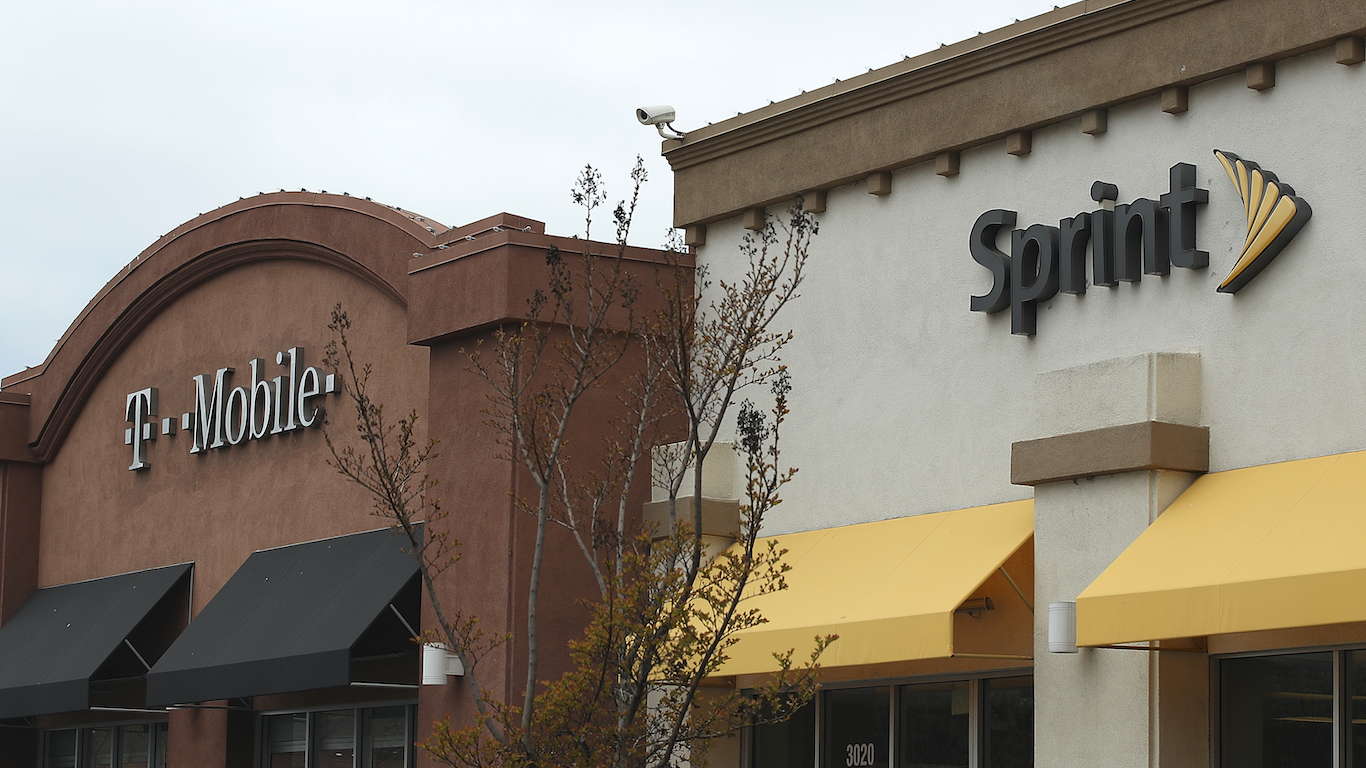Telecom & Wireless
More Bad News for Sprint and T-Mobile Merger Ambitions

Published:
Last Updated:

The proposed acquisition of Sprint Corp. (NYSE: S) by T-Mobile US Inc. (NASDAQ: TMUS) has been handed some more bad news. As far as regulators looking out for consumers, this may be good news, in that there likely will be a continued cut-throat pricing environment. For investors looking for dividends and safety in the businesses, and for telecom executives who somehow have to aim for growth and profits without sacrificing margins, this is not good news at all.
Multiple news reports have noted that as many as 10 state attorneys general will sue to block the proposed merger.
While the Federal Communications Commission (FCC) initially leaned toward approval, antitrust concerns were voiced by the U.S. Department of Justice. That may spell doom for this proposed deal, and it likely means that no acquirer of the three major U.S. wireless players will dare go after Sprint again any time soon.
This move is also bad for AT&T Inc. (NYSE: T) and Verizon Communications Inc. (NYSE: VZ) shareholders. The logic has been that three major companies trying to undercut each other would be less business pressure than a four-way war. As a reminder, AT&T was blocked back in 2011 from acquiring T-Mobile due to anticompetitive pressure.
The lack of a competition killer may be a blessing for the cell tower operators. That’s simple enough to see why. Four customers in need are probably more profitable than three more financially solid customers that can apply leverage to suppliers and service providers. American Tower Corp. (NYSE: AMT) and Crown Castle International Corp. (NYSE: CCI) both stand to benefit from the news as the leading cell-tower operators in America.
Shares of T-Mobile and Sprint were both hit hard on the news. Sprint was down 6.9% at $6.50 just ahead of the noon hour. It has a 52-week range of $5.23 to $7.90 and a consensus target price of $6.24. T-Mobile was down 2.1% at $75.04. The 52-week range is $57.76 to $80.93. The consensus analyst target is $82.53.
The larger telecom rivals actually were trading up on the news on last look: AT&T 1.4% higher at $32.38 and Verizon up 2.0% at $57.30. The former has a 52-week range of $26.80 to $34.53 and a consensus target price of $33.81, while the latter has traded between $47.13 and $61.58 in the past year and now has a $59.64 consensus price target.
The reaction in the cell-tower providers was mixed but mild. American Tower was down 0.7% at $208.33, in a 52-week range of $136.03 to $214.52 and with a consensus target price of $192.50. Crown Castle was 0.1% higher to $134.87. It has a consensus target price of $127.40 and a 52-week trading range of $99.99 to $136.39. SBA Communications Corp. (NASDAQ: SBAC) was down 0.2% at $221.16, in a 52-week range of $146.13 to $223.31. The consensus analyst target is $204.06.
While the reactions are muted compared to some that have been seen, some investors already have prepared for the deal to be blocked.
One thing that is not in the cards is whether a stalking horse standalone player would be interested in acquiring Sprint. That could be one of multiple players, from Amazon to Comcast to a whole host of other companies. Whether regulators would want to allow that remains to be seen, but if a stronger acquirer can come in and make a better run at the fourth wireless carrier, then maybe it’s just that much better in the eyes of regulators — and that much more cutthroat (lower margin) for investors of AT&T, Verizon and T-Mobile.
Thank you for reading! Have some feedback for us?
Contact the 24/7 Wall St. editorial team.